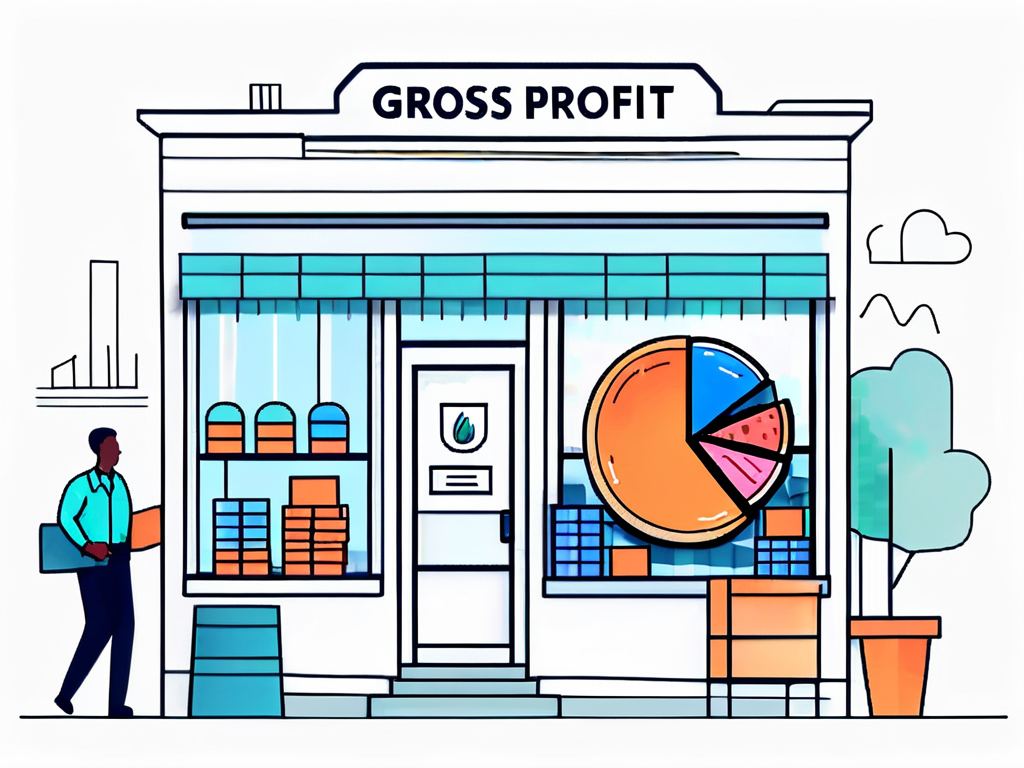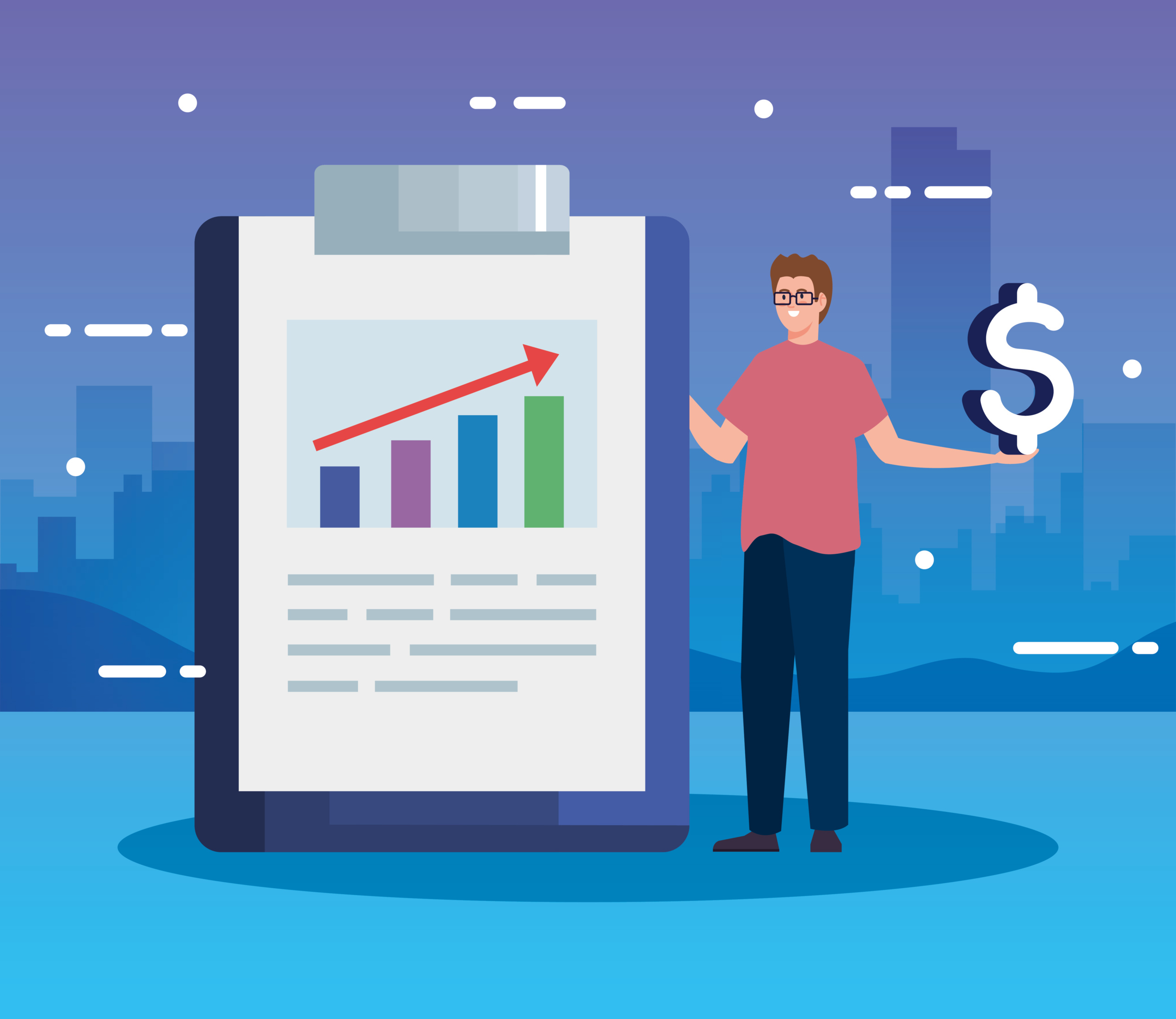Welcome, dear reader, to the wild and wacky world of Gross Profit! If you’re a small business owner, you might be thinking, “Gross profit? That sounds like something my teenage son would say after I ask him to clean his room.” But fear not, it’s actually a crucial concept in the realm of Certified Public Accountants (CPAs) and small businesses. So, buckle up, grab a cup of coffee (or a glass of wine, we don’t judge), and let’s dive into the riveting, roller-coaster ride that is Gross Profit!
Now, you might be wondering, “Why should I care about Gross Profit?” Well, let me tell you, it’s as important to your business as the secret ingredient in your grandma’s famous apple pie. It’s the financial lifeblood that keeps your business afloat. Without it, you might as well be trying to sail the Atlantic in a paper boat. So, let’s get down to business (pun absolutely intended) and unravel the mysteries of Gross Profit.
What is Gross Profit?
Imagine you’re at a carnival. You’ve just bought a giant, fluffy, pink cotton candy. The cost of the sugar, the paper cone, and the labor to spin that sugary delight is what we call the Cost of Goods Sold (COGS). Now, you sell that cotton candy for a price higher than the COGS. The money you have left after subtracting the COGS from the selling price is your Gross Profit. It’s like the sweet, sugary taste left in your mouth after you’ve devoured the cotton candy.

So, in the business world, Gross Profit is the profit a company makes after deducting the costs associated with making and selling its products, or the costs associated with providing its services. It gives you a clear picture of your company’s profitability without the interference of taxes, interest charges, or overhead costs. Think of it as the first pit stop in the race to financial success.
Gross Profit Formula
The formula for Gross Profit is as simple as a peanut butter and jelly sandwich. You take your total revenue (the whole sandwich), subtract the COGS (the cost of the bread, peanut butter, and jelly), and voila, you’ve got your Gross Profit (the delicious, satisfying taste left after you’ve eaten the sandwich).
So, in mathematical terms, the formula is: Gross Profit = Total Revenue – Cost of Goods Sold. It’s a simple subtraction, but the result can have a huge impact on your business. It’s like the difference between a gourmet meal and a fast-food burger. Both fill your stomach, but one leaves you feeling satisfied and healthy, while the other leaves you feeling bloated and regretful.
Why is Gross Profit Important?
Now, you might be thinking, “Okay, I get what Gross Profit is, but why is it so important?” Well, imagine you’re on a treasure hunt. Gross Profit is like the map that guides you to the treasure. It shows you how well your business is doing, where you’re making money, and where you’re losing money. It’s the compass that points you in the right direction.
Gross Profit is crucial because it reflects the core profitability of your company before operational costs, taxes, and interest charges are taken into account. It’s like the base layer of a lasagna. Without a solid base, the rest of the lasagna (your business) could collapse. So, in essence, Gross Profit is the foundation upon which your business is built.
Gross Profit Margin
Now, let’s talk about the Gross Profit Margin. This is like the cherry on top of your Gross Profit sundae. It’s a ratio that shows what portion of your sales revenue is actual profit after accounting for the COGS. It’s like knowing exactly how much ice cream is left after you’ve eaten all the toppings off your sundae.
The Gross Profit Margin is calculated by dividing the Gross Profit by the Total Revenue, and then multiplying by 100 to get a percentage. This percentage tells you how efficiently your business is producing and selling products or services. The higher the percentage, the more efficient your business is. It’s like the fuel efficiency of a car. The higher the miles per gallon, the better the car is at using fuel.
Understanding Gross Profit in Small Business
As a small business owner, understanding Gross Profit is like understanding the rules of the road. It helps you navigate the financial landscape, make informed decisions, and steer your business towards success. It’s like having a GPS for your business.
Gross Profit can help you identify trends, spot potential problems, and make strategic decisions. For example, if your Gross Profit is decreasing, it could be a sign that your COGS are too high, and you need to find ways to reduce them. Or, if your Gross Profit is increasing, it could be a sign that your pricing strategy is working, and you can invest more in growth and expansion.
Improving Gross Profit
Improving your Gross Profit is like tuning up your car. It involves tweaking and adjusting various parts of your business to make it run more smoothly and efficiently. This could involve reducing production costs, increasing prices, improving product quality, or finding more cost-effective suppliers.
Remember, improving Gross Profit doesn’t always mean cutting costs. Sometimes, it can mean investing in higher-quality materials or better equipment to produce a superior product that can be sold at a higher price. It’s like the difference between buying a cheap, flimsy umbrella that breaks after a few uses, and investing in a sturdy, high-quality umbrella that lasts for years.
Role of a CPA in Managing Gross Profit
A CPA, or Certified Public Accountant, is like a seasoned captain navigating the choppy waters of business finance. They can help you understand and manage your Gross Profit, ensuring that your business stays on course and reaches its financial goals.
A CPA can provide valuable insights into your financial data, help you identify trends and patterns, and provide advice on how to improve your Gross Profit. They can also help you prepare and analyze financial statements, comply with tax laws, and make strategic business decisions. In short, a CPA is an invaluable ally in the quest for business success.
CPA and Gross Profit Analysis
A CPA can conduct a Gross Profit Analysis to help you understand the profitability of your business. This involves analyzing your revenue, COGS, Gross Profit Margin, and other financial data to provide a comprehensive picture of your business’s financial health.
Through a Gross Profit Analysis, a CPA can identify areas of strength and weakness, suggest ways to improve profitability, and help you make informed business decisions. It’s like having a personal trainer for your business, helping you strengthen your financial muscles and improve your financial fitness.
Conclusion
So, there you have it, folks! The thrilling saga of Gross Profit, explained in all its glory. From what it is, why it’s important, how to improve it, and the role of a CPA, we’ve covered it all. Remember, understanding your Gross Profit is like having a secret weapon in the battle for business success. So, arm yourself with knowledge, and conquer the business world!
And remember, in the hilarious words of Oscar Wilde, “The only thing to do with good advice is to pass it on. It is never of any use to oneself.” So, if you found this guide helpful, be sure to share it with your fellow small business owners. After all, laughter (and knowledge) is best when shared!


